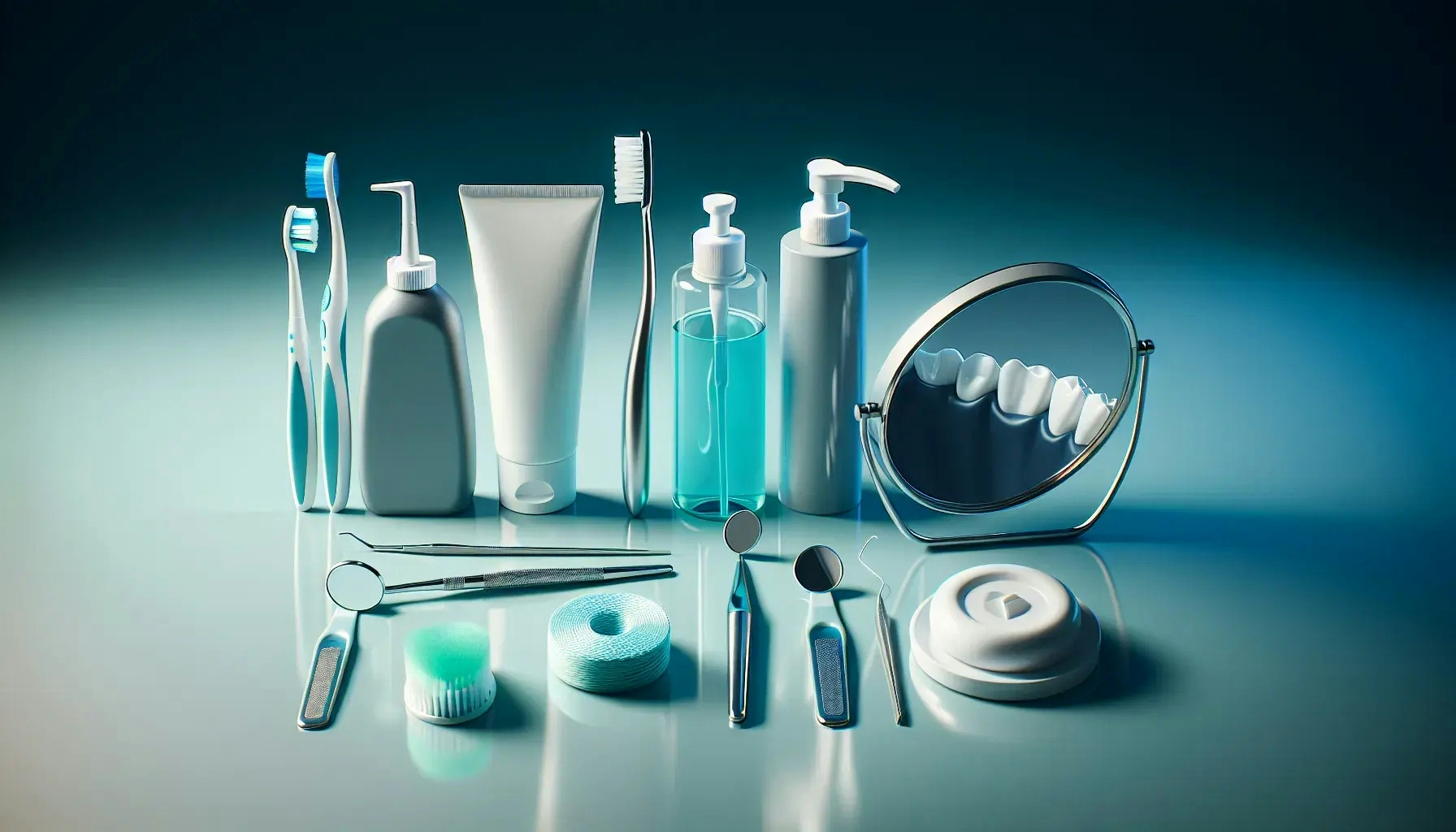A radiant smile can light up a room, but maintaining that sparkle requires more than just a quick brush in the morning. This comprehensive guide will provide you with essential tips for maintaining oral hygiene. We'll delve into the importance of oral health, the role of diet, and the significance of regular dental checkups. By the end of this post, you'll have a clear roadmap to a healthier, brighter smile.
The Importance of Oral Hygiene
Oral hygiene is not just about having a beautiful smile. It's about maintaining overall health. Poor oral hygiene can lead to a variety of health issues, including gum disease, tooth decay, and even heart disease.
Brushing and flossing daily are the cornerstones of good oral hygiene. They remove food particles and plaque, a sticky film of bacteria that forms on your teeth. If left unchecked, plaque can lead to gum disease and tooth decay.
Regular dental checkups are also crucial. They allow your dentist to spot early signs of problems and provide professional cleaning to remove tartar, a hardened form of plaque that brushing and flossing can't remove.
Remember, prevention is better than cure. By maintaining good oral hygiene, you can prevent many dental problems and keep your smile bright and healthy.
The Role of Diet in Oral Health
What you eat plays a significant role in your oral health. Sugary foods and drinks can lead to tooth decay, while certain foods can promote oral health.
Limiting your sugar intake is one of the best things you can do for your teeth. Bacteria in your mouth feed on sugar, producing acids that can erode tooth enamel and lead to cavities.
Instead, opt for a diet rich in fruits, vegetables, lean proteins, and dairy products. These foods provide essential nutrients for oral health. For example, calcium in dairy products helps strengthen tooth enamel, while vitamin C in fruits and vegetables promotes healthy gums.
Drinking plenty of water is also important. It helps wash away food particles and keeps your mouth hydrated, which can help prevent dry mouth, a condition that can lead to tooth decay and gum disease.
Brushing and Flossing: The Right Way
Brushing and flossing are the most basic steps in maintaining oral hygiene. However, doing them correctly is crucial for their effectiveness.
When brushing, use a soft-bristled toothbrush and fluoride toothpaste. Brush for at least two minutes, covering all surfaces of your teeth. Replace your toothbrush every three to four months, or sooner if the bristles become frayed.
Flossing is just as important as brushing. It removes plaque and food particles from between your teeth and under your gum line, areas that your toothbrush can't reach. Use a gentle sawing motion, and curve the floss around each tooth to clean effectively.
Remember, overzealous brushing and flossing can damage your gums. So, be gentle and take your time.
The Significance of Regular Dental Checkups
Regular dental checkups are an essential part of maintaining oral hygiene. They allow your dentist to spot early signs of problems and provide professional cleaning.
During a checkup, your dentist will examine your teeth, gums, and mouth for signs of disease. They may also take X-rays to check for problems below the surface of your teeth and gums. If any issues are found, your dentist can provide treatment to prevent them from worsening.
Professional cleaning, also known as scaling and polishing, removes tartar, a hardened form of plaque that brushing and flossing can't remove. This helps prevent gum disease and tooth decay.
Remember, even if your teeth look and feel fine, regular checkups are still important. They are your best defense against dental problems.
The Impact of Lifestyle Choices on Oral Health
Your lifestyle choices can also impact your oral health. Smoking, for example, can stain your teeth and increase your risk of gum disease and oral cancer. Excessive alcohol consumption can also harm your oral health, leading to dry mouth and increasing your risk of oral cancer.
Stress can also affect your oral health. It can lead to teeth grinding, gum disease, and canker sores. Therefore, managing stress through exercise, meditation, or other relaxation techniques can help protect your oral health.
Remember, your oral health is a reflection of your overall health. By making healthy lifestyle choices, you can maintain a healthy smile and improve your overall well-being.
The Role of Oral Hygiene Products
The market is flooded with a variety of oral hygiene products, from toothpastes and mouthwashes to dental floss and interdental brushes. Choosing the right products can enhance your oral hygiene routine.
Fluoride toothpaste is a must. It strengthens tooth enamel and helps prevent cavities. When choosing a toothbrush, opt for one with soft bristles to avoid damaging your gums.
Mouthwash can also be a useful addition to your routine. It can reach areas that your toothbrush can't, killing bacteria and freshening your breath. However, it's not a substitute for brushing and flossing.
Remember, the best oral hygiene products are the ones you use consistently. Choose products that you like and that fit into your daily routine.
Embrace a Healthier Smile: Your Guide to Oral Hygiene
Maintaining oral hygiene is not just about having a beautiful smile. It's about preserving your overall health. By understanding the importance of oral hygiene, making smart dietary choices, brushing and flossing correctly, scheduling regular dental checkups, making healthy lifestyle choices, and choosing the right oral hygiene products, you can keep your smile bright and healthy. Embrace these tips for maintaining oral hygiene and let your smile shine.

